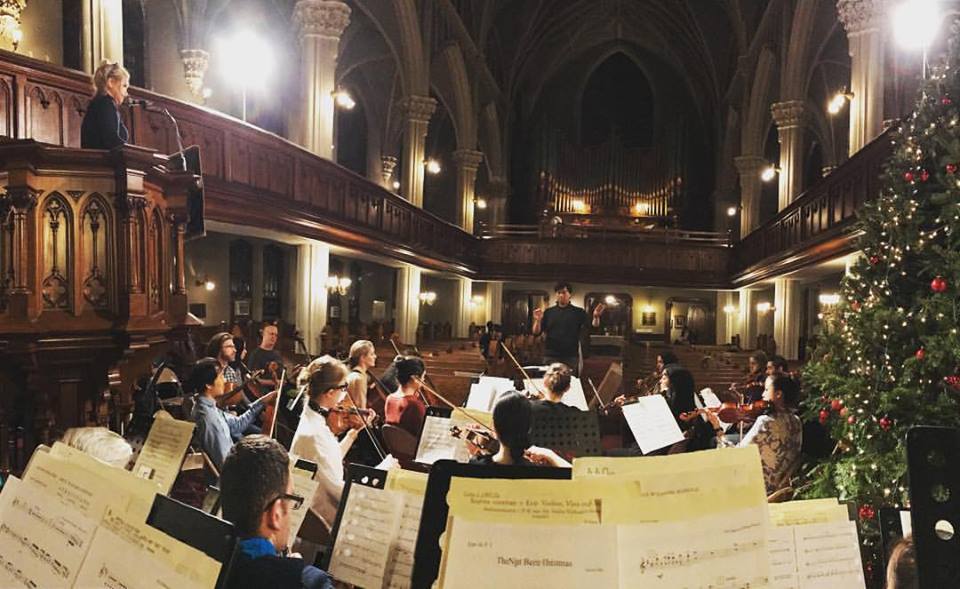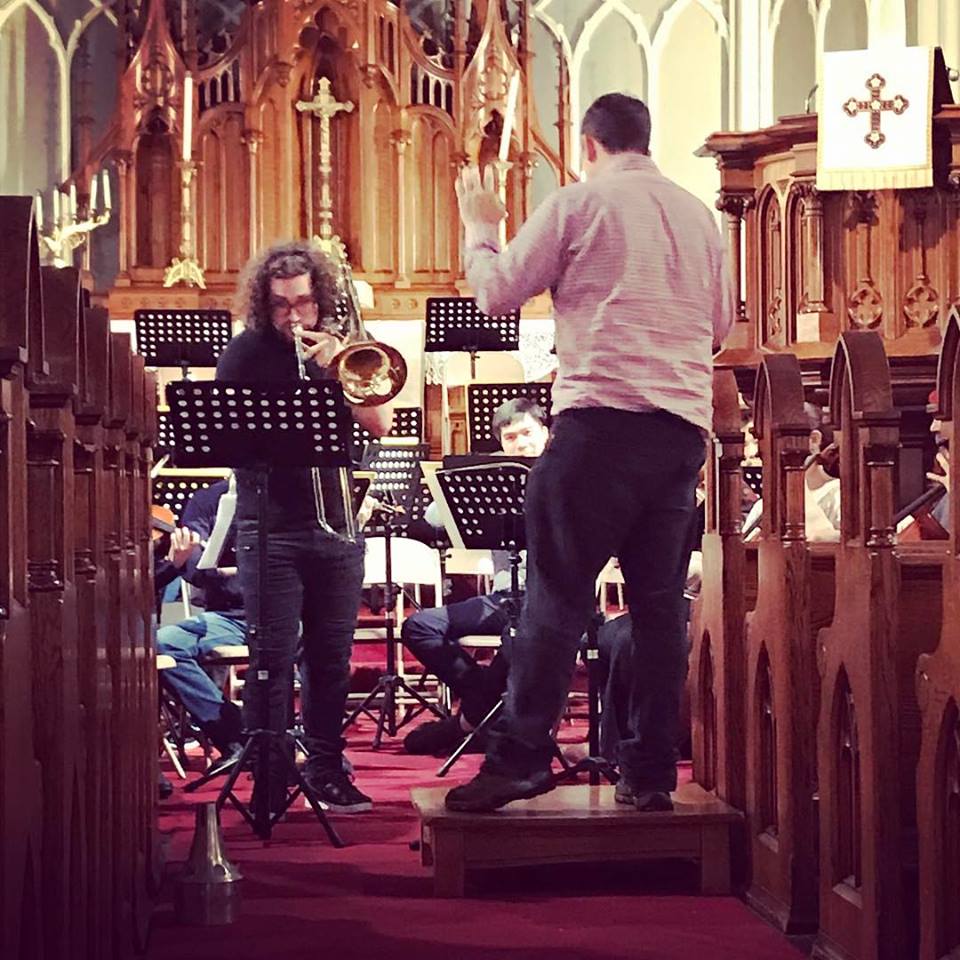“Imagining Sound As A Whole” Ditmas Park Bassist On Composing For An Orchestra


The Chelsea Symphony will premiere Song of Zippy, an orchestral work by Ditmas Park composer Tim Kiah, on Friday, January 27. The piece, inspired by the passing of Kiah’s dog, draws on themes and techniques not often associated with classical music.
As he prepared for the rehearsal where he will hear the full orchestra play his work for the first time, Kiah reflected on the process of creating a piece for a symphony.
Kiah, who has also written and performed with rock, jazz, and bluegrass bands, said that composing music, regardless of the genre, “is all the same in a certain way. The genesis is inspiration, whatever that may be. Sometimes it comes from an idea, sometimes from a sound.”
The major difference in composing for an orchestra, he explained, is in the process which takes its name from the ensemble: orchestration. That is the work of taking a melody or idea that’s been created for a single instrument, often a keyboard, and developing parts for all the sections of the symphony. That means writing separate parts for strings, brass, woodwinds and percussion. In the case of Song of Zippy, there are also parts for piano and vocalists.
For Kiah, this piece began with feelings that might have seemed too commonplace to sustain a major work. “My dog passed away, and I was pretty sad. I jotted some ideas on keyboard that sounded like Zippy, combining the joy of his life with the sadness I was feeling.”
He was studying at the time with David Del Tredici, an American composer who won a Pulitzer Prize for his piece In Memory of a Summer Day, based on Lewis Carroll’s Alice in Wonderland.
Kiah played Del Tredici the sketches he had created.”I told him it was about my dog that had just passed. He took a moment, sitting at his piano, and said ‘Use Zippy as an inspiration.’ It was simple to say, but it was a powerful moment.”
Kiah continued composing the piece and quickly decided that it would include a vocal element. He wrote a poem, which opens the work, and then developed a rhythmic element, a kind of chanting that’s “unique in an orchestral work,” he said. Inspired by Arnold Schoenberg’s technique of sprechstimme, Kiah describes it as “using voices in a musical way, without singing but conveying emotion.”

Although Kiah is a bass player who had used that instrument for the basic composition of other pieces, Song of Zippy was initially developed on keyboard. “That is pretty common, because the keyboard has a large harmonic capacity and plays many notes that mimic the range of an ensemble,” he said.
Once the composition was complete, Kiah began the orchestration. “That takes the skeleton and transforms it to an orchestral score,” he said. But a composer also must be aware of what “lays well” on certain instruments. That describes a composer’s attention to what’s required to actually perform a given piece of music on clarinet or oboe compared to a horn or a violin.
“Composing is imagining the sound as a whole. That means trying to hear what it will sound like when played by different instruments,” Kiah said. “Sometimes you have an idea in your head, but it sounds different when you hear it played. That’s why orchestration is a learning process. You learn what works when it sounds sublime, and you learn what doesn’t work when it sounds like shit!”
In addition to the creative aspect of composition, composing an orchestral score also requires producing the written notation for the performance of each individual instrument. Although there is now software that makes the process more efficient, when Kiah began his career, the work was more labor-intensive.
“My first major composition was all done by hand,” he said. “There’s something magical about that. My friend, the composer Kenji Bunch, has a piece he did all by hand. It was an art in itself, almost like calligraphy.”
Although he had distributed the score to the members of the Chelsea Symphony two weeks before the debut, Kiah has yet to hear the piece performed. He was looking forward to rehearsal, when the conductor would share with the musicians his vision for the performance.

“I met with the conductor yesterday,” Kiah said. “We talked about different passages with changes in time signature and tempo, and we looked at the score and saw which passages might be difficult to execute.”
“Because much classical music does not have improvisation the way we think of it, interpretation is up to the conductor and the musicians,” he said.
As he anticipated his first opportunity to hear the work performed, Kiah found himself in the position that any composer of an orchestral work eventually faces. “I haven’t heard full orchestra playing, yet I have a pretty good idea of what it will all sound like, but at the same time, I have no idea at all.”
The Chelsea Symphony will perform Song of Zippy on Friday, January 27 and Saturday, January 28 as part of a program with works by Peteris Vasks, Bach, Strauss, Bartok and Sibelius. The performances are at St. Paul’s Church in Manhattan, located at 315 West 22nd Street; tickets are available online and at the door.




